The rising cost of living has many Canadians looking for ways to save money. Even though food can be one of the highest monthly expenses, tightening up on how much you spend doesn’t mean you have to give up healthy eating.
As a Registered Dietitian at TELUS Health MyCare™, the following are some popular tips I give to clients to help make their monthly budget go further when shopping for healthy food.
Is healthy food more expensive?
The honest answer is yes, it can be. But it doesn’t have to be more expensive. It depends on what and how you eat.
A diet rich in fresh fruits, vegetables, nuts, seeds, and fish is healthier and costs more than a diet of highly processed foods and refined grains.
If you order takeout often, you will spend more than someone who cooks at home. A plant-based diet with plenty of legumes, soy, vegetables, fruits, and other plant foods is less expensive than eating a lot of meat.
Health, cost, and convenience are just a few of the many decisions we make when it comes to food. However, even on a tight budget, you can reduce reliance on ultra-processed foods.
How to eat more fruits and vegetables on a budget
Don’t be afraid of frozen fruits and veggies; they can be just as nutritious as their fresh counterparts and work well in smoothies, oatmeal, soups, and stir-fries. Plus, frozen fruits and vegetables lead to less waste because they last longer.
Other ways to make your budget go further:
- Buy in bulk. Root vegetables like carrots, potatoes, and onions last longer in storage.
- Freeze fruits and veggies before they go bad and use them later. For example, frozen spinach can easily be added to a smoothie or pasta sauce.
- Buy produce that’s in season.
- Grow your own if and when possible.
Is organic produce healthier?
Research doesn’t show that organic produce is significantly healthier or more nutritious than conventionally grown produce. In fact, the Environmental Working Group’s famous Clean 15 list lacks scientific credibility. Surprised? Many people are when I tell them this.
Instead of worrying about whether food is organic or not, focus on getting more fruits and veggies into your diet.
Depending on the time of year, it’s better to focus on what is locally grown and in season. Locally grown food often retains more nutrients than the out-of-season stuff or food that has had a long trip to get to your grocery store.
Are superfoods worth the hype?
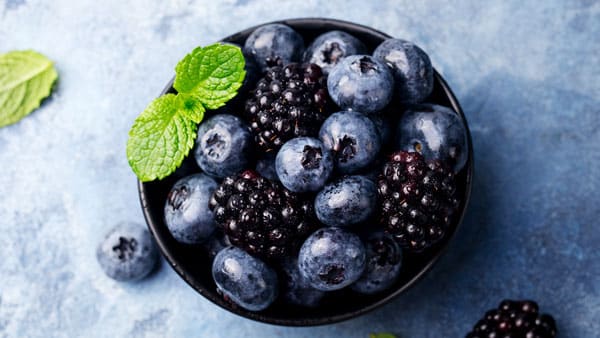
The word superfood was primarily made up by marketers to sell nutritionally dense products. However, as cool as the idea of superfoods sounds, it’s not a scientific term, and there is no official list of superfoods that dietitians refer to.
Many “regular” foods, like lentils, beets, berries and grains, are nutrient-dense and packed with the disease-fighting antioxidants these “so-called’ superfoods contain. You don’t need to spend a small fortune at a specialty food store. In reality, you can buy fruits, veggies, barley and lentils pretty much anywhere!
Best foods to buy on a budget
Some of my favourite budget-friendly foods are legumes, like dried lentils, canned chickpeas and beans. If you have time to soak them, dried beans are also great. They are packed full of protein, healthy and very economical.
Speaking of protein-rich foods, Greek yogurt is a better deal than regular yogurt since it has far more protein and it’s more filling.
Other healthy and economical food choices include:
- Canned tuna
- Tofu
- Whole grains: oats, brown rice and barley
- Eggs
- Dairy
- Peanut butter
Budget-friendly ways to eat healthy
Plan your meals
Meal planning helps you avoid buying convenience foods when you’re tired and lack the energy to make a meal. Eating for convenience can cost more and is often less nutritious than a home-cooked meal.
You also waste less food when buying items for specific recipes and meals. Plus, when you have a list at the grocery store, you’re focused on what you need and less tempted by what you don’t need.
Cook in batches
Making food in larger quantities can help you stick to a tight budget. Simply roasting root vegetables with chicken or tofu can make leftovers for days. Same for a big batch of turkey bean chilli, which can easily be frozen for future meals.
Make simple meals
Don’t worry about trying to make fancy meals at home. Keep it simple. Aim for 1/2 a plate of veggies (frozen is a great option), 1/4 a plate of protein (like chicken breast, tofu, beans, and eggs) and 1/4 a plate of grain (like brown rice, lentils and barley).
What are some budget-friendly food tips and tricks you’ve discovered? Let us know in the comments.
A Guy’s Guide to Eating Healthy
Make healthy eating easier with simple dietitian tips, food facts and recipes made for men.
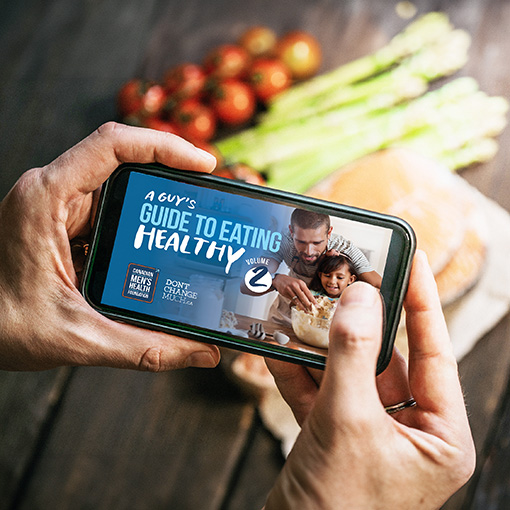
proudly sponsored by:
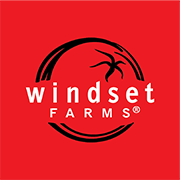
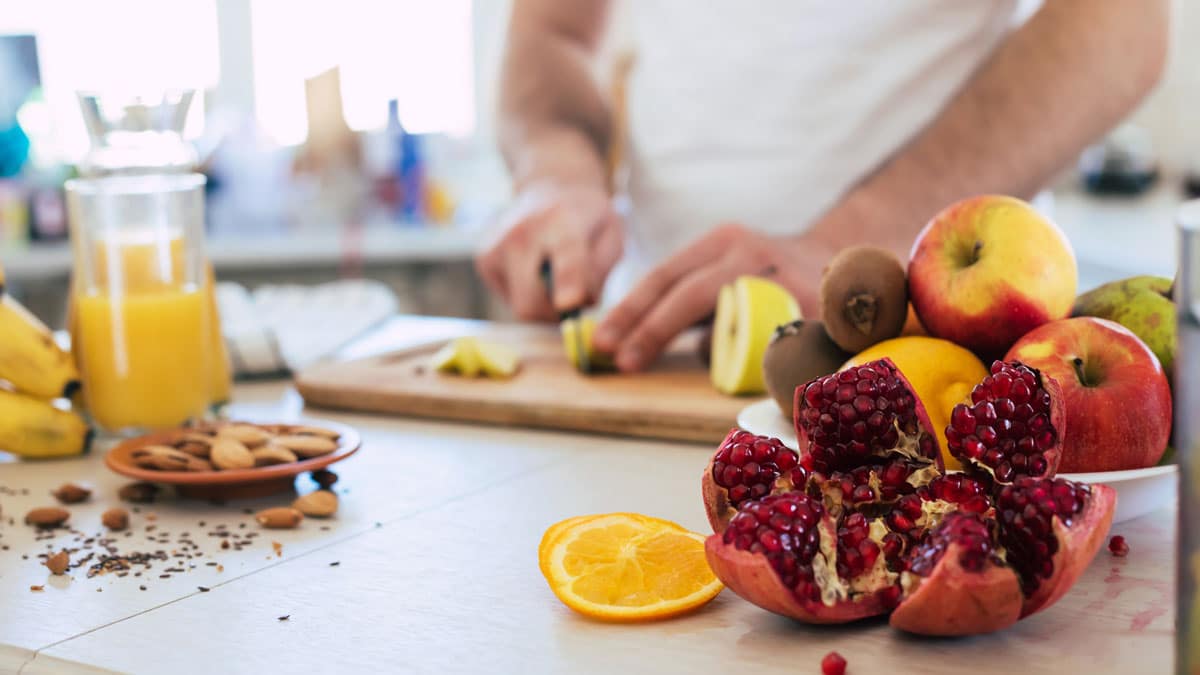

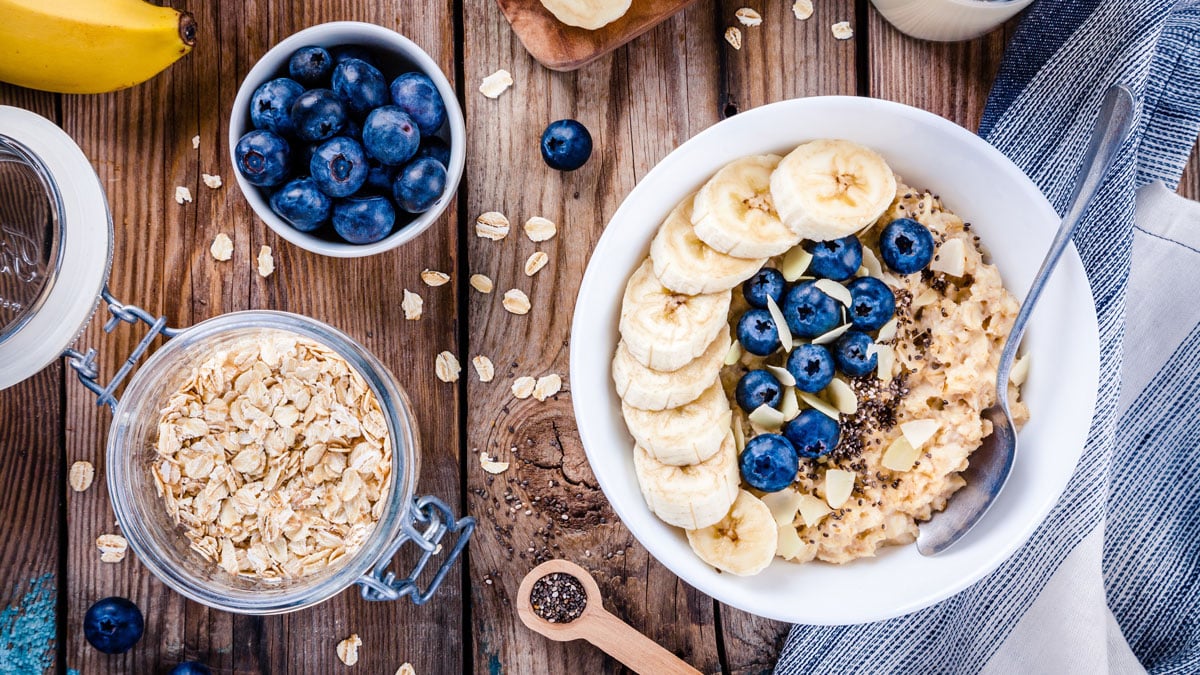

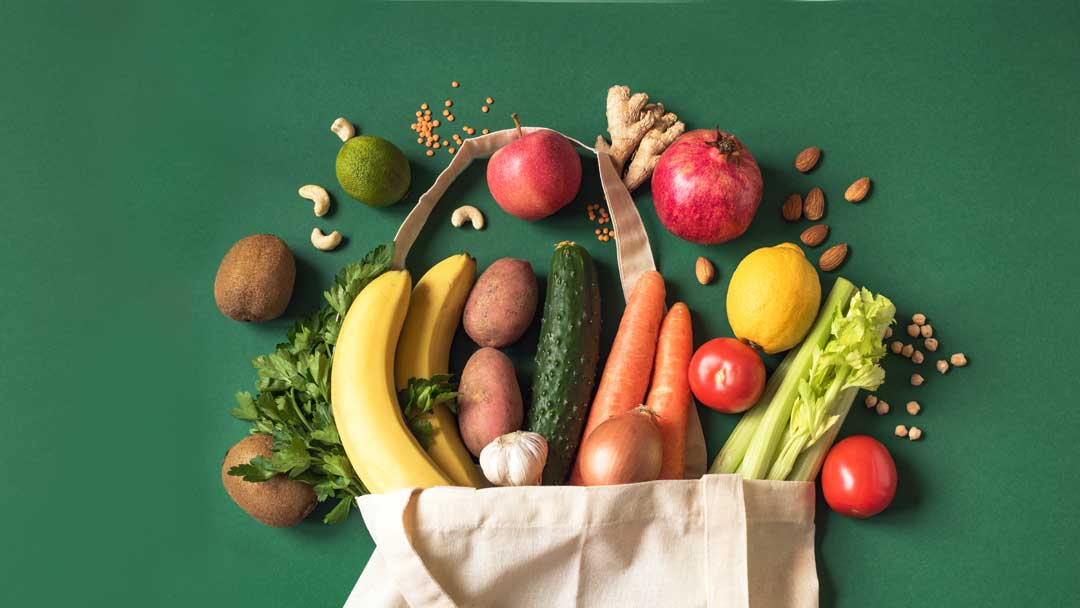
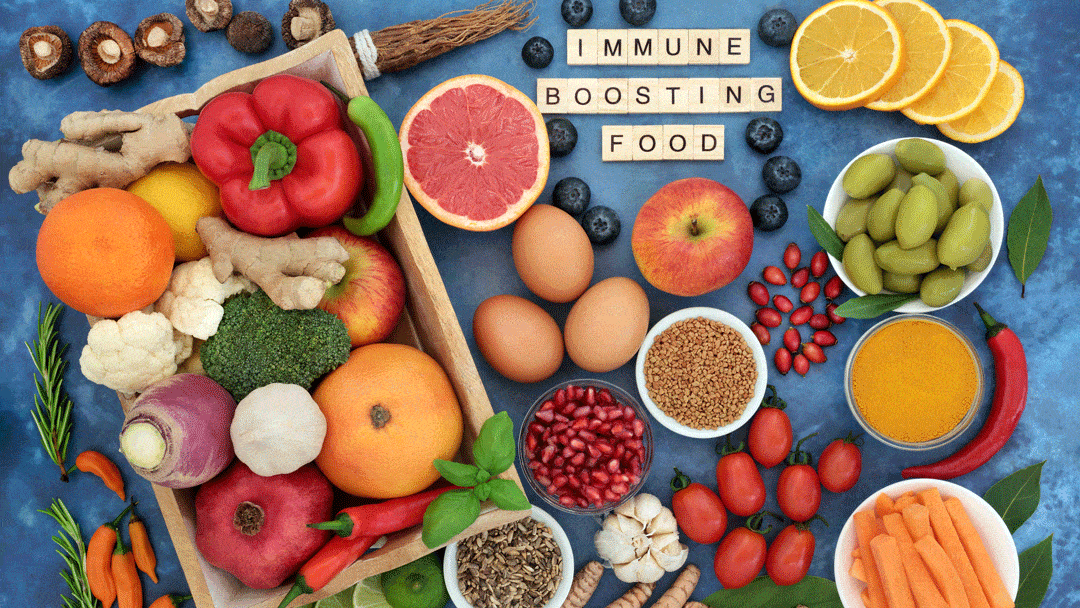
Let’s Talk!
Did you enjoy this article? Let us know in the comments.
0 Comments